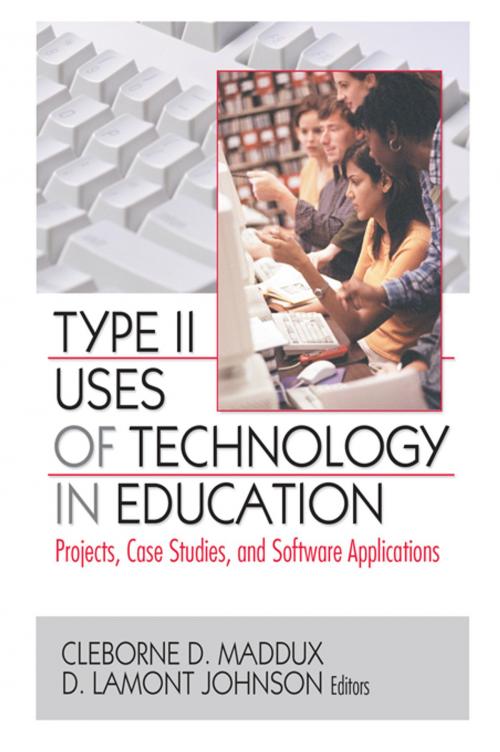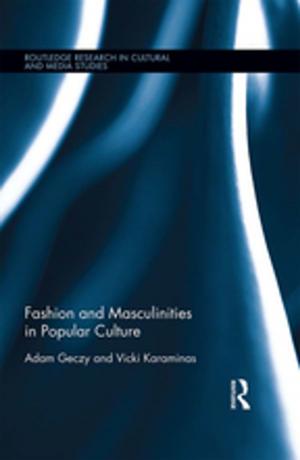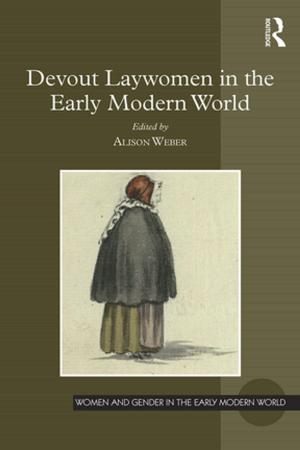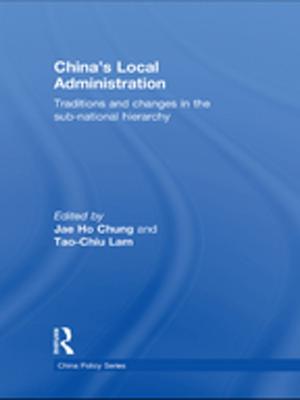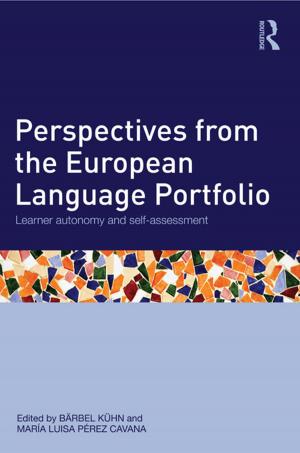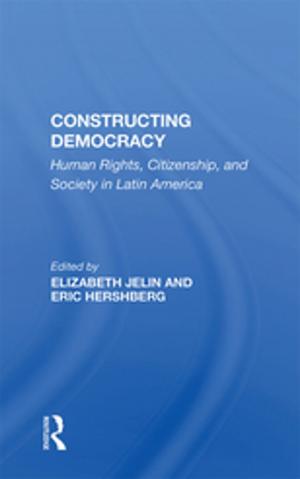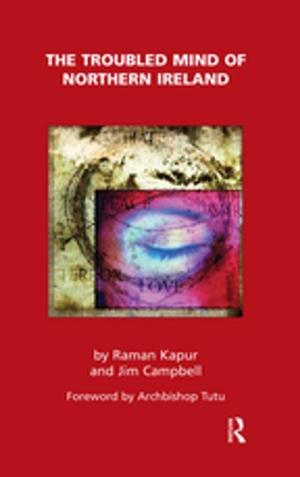Type II Uses of Technology in Education
Projects, Case Studies, and Software Applications
Nonfiction, Computers, General Computing, Reference & Language, Education & Teaching| Author: | ISBN: | 9781136447952 | |
| Publisher: | Taylor and Francis | Publication: | November 12, 2012 |
| Imprint: | Routledge | Language: | English |
| Author: | |
| ISBN: | 9781136447952 |
| Publisher: | Taylor and Francis |
| Publication: | November 12, 2012 |
| Imprint: | Routledge |
| Language: | English |
Spark your students to actually want to learn through the creative application of technology!
Type II applications in education make it possible to teach in new and more effective ways. Type II Uses of Technology in Education: Projects, Case Studies, and Software Applications clearly explains methods and strategies presently used by teachers to offer students a creative learning experience through the application of technology. Each chapter presents individual examples of how teachers have applied technology in schools and classrooms, illustrating through case studies, projects, and software applications how to effectively spark students’ interest and learning.
Type II Uses of Technology in Education is the third in a series (Internet Applications of Type II Uses of Technology in Education and Classroom Integration of Type II Uses of Technology in Education, both from Haworth) that provides a clear view of the advantages-and challenges-involved in the use of technology to enhance and actively involve students in the learning process. The applications described and discussed at length here go beyond the mundane educational functions like grading or presenting drill and practice exercises to explore fresh ways of teaching and learning. Students can become involved and actually want to learn, all through the use of creative technology application. The book also includes tables and figures to enhance understanding of the material.
Type II Uses of Technology in Education discusses:
-
data collection, analysis, and communication in student research using pocket PCs and laptops
-
the educational effect of using a learning object as a pedagogical model rather than simply being technological in nature
-
examples of integrated Type II activities
-
e-learning courses using interactive video, WebCT, and on-site discussion groups
-
electronic discussion applications in a laptop university teacher education program
-
challenges facing students using computers to enhance and express the extent of their learning
-
information and communication technology (ICT) integration into schools-using three illustrative case studies
-
forward planning needed to make the difficult change to technological application for learning
-
a case study that used problem-based learning software with at-risk students
-
using technology to reinforce visual learning strategies
-
digital portfolio development as a Type II application
-
interactive computer technology in art instruction
-
on-demand help features for effective interactive learning experience
-
Personal Educational Tools (PETs)
Type II Uses of Technology in Education: Projects, Case Studies, and Software Applications provides numerous illustrations of technology learning in action and is perfect for educators and students in programs dealing with information technology in education, and for public school personnel with interests and responsibilities in using information technology in the classroom.
Spark your students to actually want to learn through the creative application of technology!
Type II applications in education make it possible to teach in new and more effective ways. Type II Uses of Technology in Education: Projects, Case Studies, and Software Applications clearly explains methods and strategies presently used by teachers to offer students a creative learning experience through the application of technology. Each chapter presents individual examples of how teachers have applied technology in schools and classrooms, illustrating through case studies, projects, and software applications how to effectively spark students’ interest and learning.
Type II Uses of Technology in Education is the third in a series (Internet Applications of Type II Uses of Technology in Education and Classroom Integration of Type II Uses of Technology in Education, both from Haworth) that provides a clear view of the advantages-and challenges-involved in the use of technology to enhance and actively involve students in the learning process. The applications described and discussed at length here go beyond the mundane educational functions like grading or presenting drill and practice exercises to explore fresh ways of teaching and learning. Students can become involved and actually want to learn, all through the use of creative technology application. The book also includes tables and figures to enhance understanding of the material.
Type II Uses of Technology in Education discusses:
-
data collection, analysis, and communication in student research using pocket PCs and laptops
-
the educational effect of using a learning object as a pedagogical model rather than simply being technological in nature
-
examples of integrated Type II activities
-
e-learning courses using interactive video, WebCT, and on-site discussion groups
-
electronic discussion applications in a laptop university teacher education program
-
challenges facing students using computers to enhance and express the extent of their learning
-
information and communication technology (ICT) integration into schools-using three illustrative case studies
-
forward planning needed to make the difficult change to technological application for learning
-
a case study that used problem-based learning software with at-risk students
-
using technology to reinforce visual learning strategies
-
digital portfolio development as a Type II application
-
interactive computer technology in art instruction
-
on-demand help features for effective interactive learning experience
-
Personal Educational Tools (PETs)
Type II Uses of Technology in Education: Projects, Case Studies, and Software Applications provides numerous illustrations of technology learning in action and is perfect for educators and students in programs dealing with information technology in education, and for public school personnel with interests and responsibilities in using information technology in the classroom.
